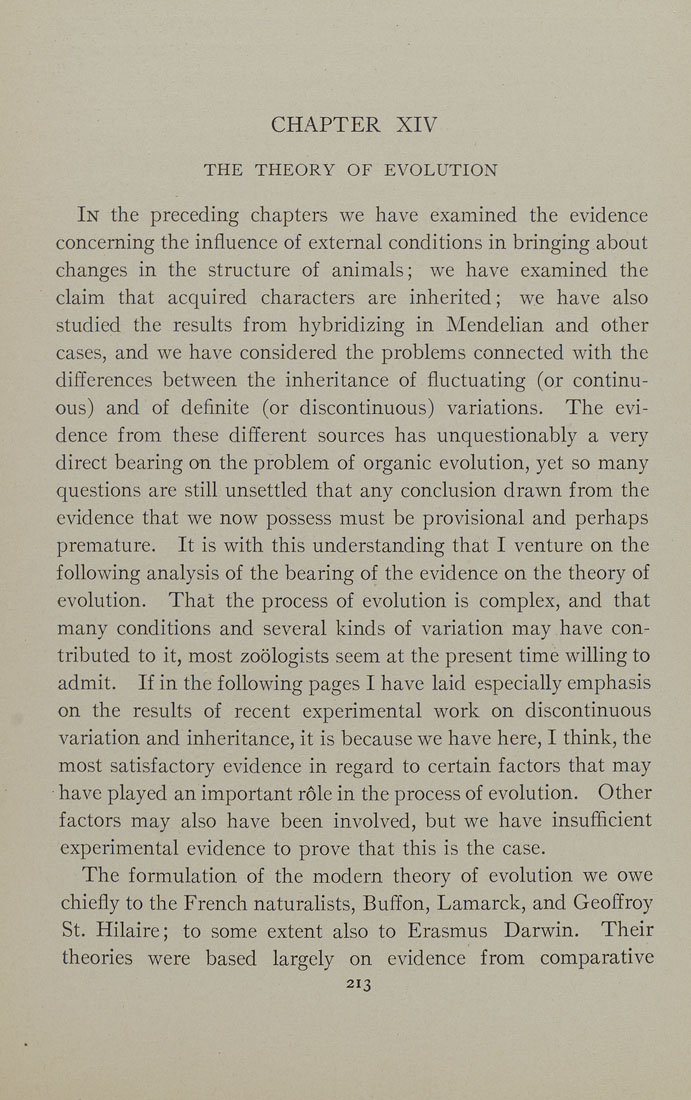CHAPTER XIV
THE THEORY OF EVOLUTION
In the preceding chapters we have examined the evidence
concerning the influence of external conditions in bringing about
changes in the structure of animals; we have examined the
claim that acquired characters are inherited; we have also
studied the results from hybridizing in Mendelian and other
cases, and we have considered the problems connected with the
differences between the inheritance of fluctuating (or continu¬
ous) and of definite (or discontinuous) variations. The evi¬
dence from these different sources has unquestionably a very
direct bearing on the problem of organic evolution, yet so many
questions are still unsettled that any conclusion drawn from the
evidence that we now possess must be provisional and perhaps
premature. It is with this understanding that I venture on the
following analysis of the bearing of the evidence on the theory of
evolution. That the process of evolution is complex, and that
many conditions and several kinds of variation may have con¬
tributed to it, most zoologists seem at the present time willing to
admit. If in the following pages I have laid especially emphasis
on the results of recent experimental work on discontinuous
variation and inheritance, it is because we have here, I think, the
most satisfactory evidence in regard to certain factors that may
have played an important role in the process of evolution. Other
factors may also have been involved, but we have insufficient
experimental evidence to prove that this is the case.
The formulation of the modern theory of evolution we owe
chiefly to the French naturalists, Buffon, Lamarck, and Geoffroy
St. Hilaire; to some extent also to Erasmus Darwin. Their
theories vv^ere based largely on evidence from comparative
213
|








